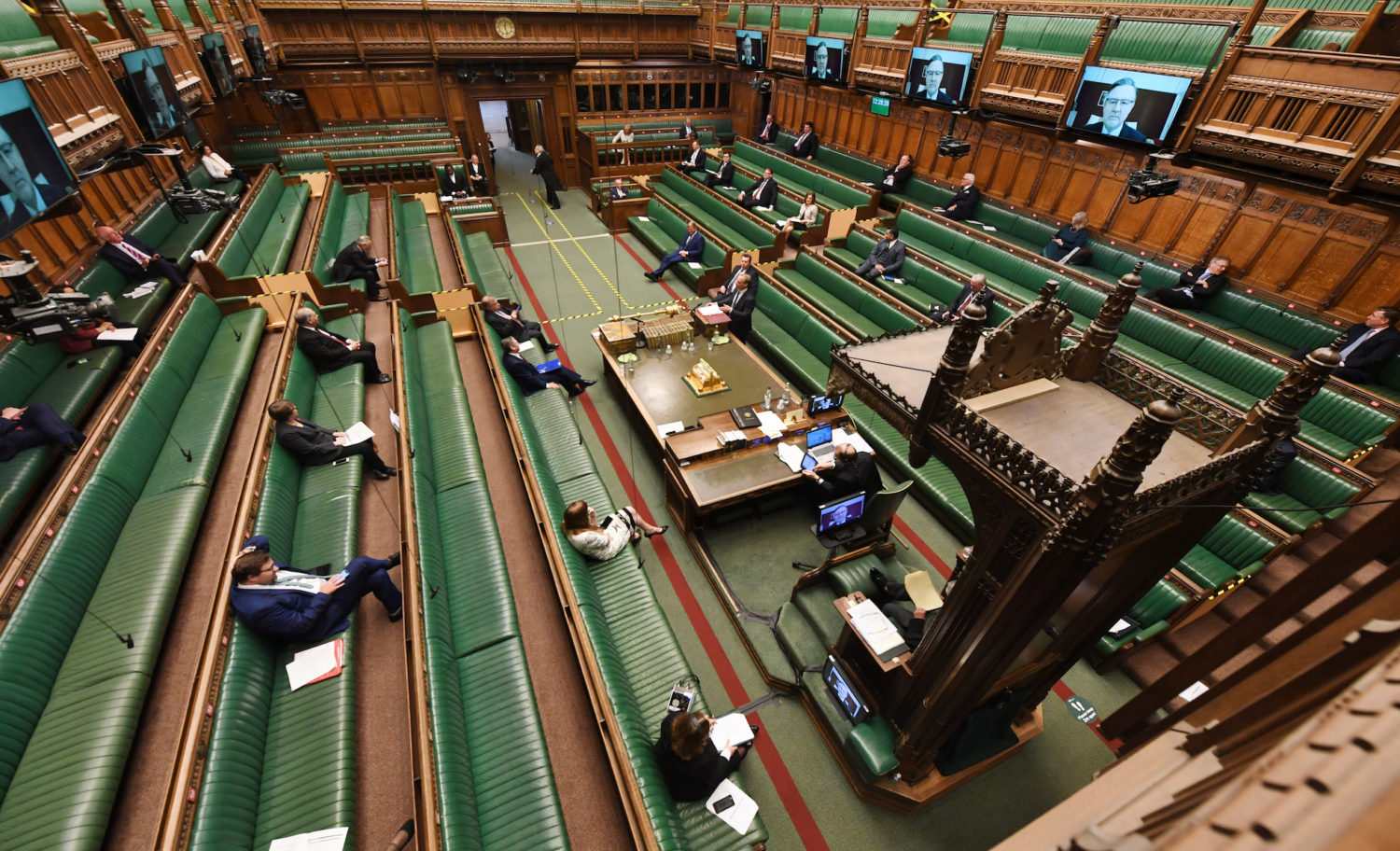Muddled metaphors
Leaders must stop using war rhetoric during the Covid-19 pandemic, argues Elinor Clark.
Around the world, governments and leaders are framing the Covid-19 pandemic as a war. UK prime minister Boris Johnson has done this repeatedly, warning that we are all ‘directly enlisted’ in this battle, while the prime minister of Spain, Pedro Sánchez, stated: “We are at war” and US president Donald Trump remodelled himself as a ‘wartime president’. Headlines referring to ‘blitz spirit’ make embarrassing reading in the UK press and politicians’ speeches are littered with war rhetoric.
Invoking images of combat is an inaccurate and problematic way of framing this pandemic. Let’s be clear: we are not at war with coronavirus. The patients who have died are not collateral damage. We are desperately working to save people and to develop a vaccine against Covid-19. What we are not looking to do is battle and conquer anything or anyone. The fact that our leaders are using wartime rhetoric is a sad indictment of modern society: governments have chosen to ignite jingoistic sentiment through speeches encased in military language, rather than view the disease as a challenge the world must face collectively with compassionate mutual aid.
During times of conflict, decisions that would normally be seen as undemocratic – such as heightened surveillance, the postponement of elections and unchecked increases on government power – are framed as necessary and introduced with less scrutiny and opposition. The UK’s coronavirus bill, passed in just three days, significantly extends government powers. Extra authority has also been given to UK police forces to stop, question and detain those suspected of carrying the virus. The coronavirus bill’s ‘sunset clause’ allows these unprecedented powers to be in place for at least two years, and potentially longer, meaning we may struggle to remove these measures once ‘normality’ returns.
The UK’s Covid-19 laws are disproportionately affecting the working class and ethnic minorities, but the gravity of the ‘war’ we are fighting is deemed more important than the inequalities marginalised communities are facing. Enhanced policing powers, for instance, typically have a greater impact on those who are already unfairly treated by the police, in particular black and brown communities. Similarly, those on lower incomes living in unfit accommodation or housing with limited space and no gardens will be most affected by public park closures. Therefore, we must not jump to the conclusion that people venturing outside are ‘covidiots’ for spreading the disease, as tabloid newspaper headlines would have us believe.
Using wartime language during a pandemic creates an enemy. Instead of coming together, the coronavirus ‘war’ is about defeating someone: but who? Those being scapegoated include the Chinese, migrants and refugees. Trump, for instance, has been referring to Covid-19 as the ‘Chinese virus’ which is inciting racism against Chinese and Asian communities. It is an attempt from Trump to discredit a nation he perceives to be a political and economic threat. In Europe, governments have used the pandemic to justify tightening borders and accepting fewer refugees and asylum seekers. Governments seem to be using the virus to further their political agendas.
Wartime rhetoric is designed to invoke nationalism and encourages us to believe we are ‘all in this together’. Government ministers reassure the public from their country retreats and second homes. We need to “remain united and resolute”, the Queen insists from one of her palaces. The truth is, we are not in this together. The message of unity shallowly attempts to paper over vast inequalities between the haves and have-nots, which coronavirus is bringing to light. From the appalling lack of workers’ rights to the inadequacy of the benefits system, serious injustices have been highlighted by the pandemic.
The tragedy of Covid-19 could ultimately prove a catalyst for real, substantive change – but only if the myth that we are all suffering equally is dispelled. Dr Jesse Cox is a junior doctor. He too has noticed an uptick in news and government rhetoric comparing the pandemic to a war. He writes: “We have to remember the NHS isn’t a wartime organisation… We can’t compare the sacrifice of sending people into active warzones with a domestic health issue… So be wary of the rhetoric. And let’s push our representatives to fund all public services fairly, even when the dust settles.”
There is also the question of whether male-dominated cabinets are to blame for the prevalent use of war rhetoric during this pandemic. Not only is warfare more common in men, but there seems to be a link between gender equality, female leadership and a state’s use of violence: studies suggest that gender equality decreases the likelihood of violence being used in a crisis. It is therefore interesting that Germany, led by chancellor Angela Merkel, has set out its opposition to referring to the Covid-19 outbreak as a war – and in general, women leaders are being praised for their effective handling of the crisis. There are lessons here for the UK.
Navigating a successful path out of the coronavirus crisis will require clear, non-inflammatory communication that takes into account people’s differing circumstances. Governments must be open, honest and transparent. This is not a case of ‘loose lips sink ships’. What is needed in these difficult times is clearly defined, well-considered plans, not muddled metaphors and rousing war rhetoric.
Photo credit: UK Parliament/Flickr

